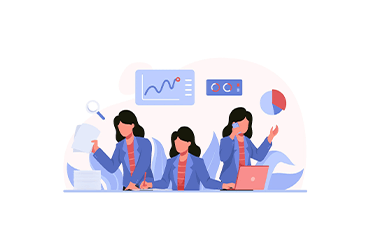
 May 29, 2022
May 29, 2022
An entrepreneur is an individual who establishes and grows a business. It combines various factors of production (such as - land, labor and capital) to try to create a new profitable business. Entrepreneurs are themselves an important "factor of production" and an essential aspect of an effective free market economy.
free market development
Entrepreneurs are important in a free market because they help the market respond to changing prices and consumer preferences, for example, with increased use of the Internet, the entrepreneur may see the possibility of creating a new home delivery service that uses an app for consumers to buy. Without entrepreneurs, product markets will become static and will be slow to changes in technology and new trends
Efficiency improvements
A successful entrepreneur may get revenue from a well-established business, this can cause "creative destruction" a phrase used to describe changes in the economy - which in the short term may lead to business outages and/or job losses.
However, this ability to creatively disrupt also creates an incentive for established businesses to adapt and increase their efficiency, for example, in response to Uber's taxi services, creating an incentive for established taxi companies to develop their own apps.
Entrepreneurs can make drastic changes and introduce new technologies that move dramatically in the industry. For example, Henry Ford's new use of assembly lines allowed a drastic reduction in the average cost of producing a car, his savings in efficiency compelling other automakers to follow suit.
Entrepreneurs can often "redefine the rules" of an established industry. For example, in the 1990s, if you wanted to rent a room, you would have to search newspaper ads and have to make a decision based on 40 text words.
However, the new services mean that you can easily search through different possibilities and get your available business opportunity and this has created a new market and a new service that increases the efficiency of finding a compatible person to work with.
Entrepreneurship is not just about price and profit, the entrepreneur may be motivated to enter an industry to offer a more ethical product or provide service to the community, and the entrepreneur can sell his new business for more than the costs of inputs or continue to grow and develop the business.
Profit is the biggest motivator, and if the business is successful, the entrepreneur can pay himself big profits or sell the product.
The unemployed may feel that self-employment is the best opportunity to earn an income.
Sometimes, entrepreneurs set up a company to deal with a lost market, for example, Louis Braille was completely blind - which led him to invent the Braille system for communicating and reading.
Non-financial motives
The profit motive may be mixed with the desire to achieve other goals.
The entrepreneur may want to do a different type of business, for example an eco-friendly organic farm.
The entrepreneur may also be motivated by non-financial factors, such as independence to work for themselves or choosing hours and not having to listen to another boss.